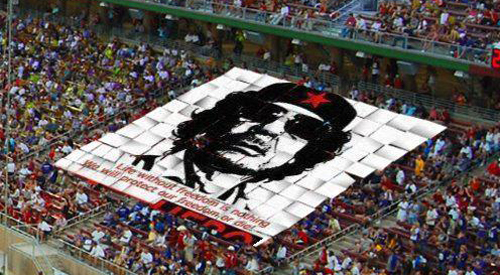
“We have a debt to Libya, very clear: a decade of disorder.”These words of Emmanuel Macron, addressed to the new Libyan leaders on Tuesday, March 23 at the Élysée Palace, sound like an admission of a mistake: the 2011 intervention against Muammar Gaddafi, encouraged at the time by French President Nicolas Sarkozy, and which had repercussions in the Sahel.
In a laconic six-second sentence, Emmanuel Macron officially acknowledged for the first time France’s responsibility for the unrest in Libya and part of Africa over the past ten years.
The heads of state in the Sahel regularly complain about the consequences of the Western intervention against Muammar Gaddafi in 2011: his fall not only deprived them of the financial manna of Tripoli, but also dispersed armed fighters throughout the region and provoked “the massive arrival of mercenaries of all nationalities”, as Idriss Déby, the Chadian president, denounced in August 2020.
Some actors in the coalition at the time had already made their mea culpa. Former American President Barack Obama even considered that the intervention in Libya, at the call of Nicolas Sarkozy, was his greatest mistake.
According to analyst Antoine Glaser, Emmanuel Macron is making this admission of French guilt less to emphasize the responsibility of his predecessor than to try to regain a foothold in Libya, while Turkey, Russia and Italy have regained ground. Libya, in addition to its oil wealth, is a key country for the control of the Mediterranean and the flow of migrants
Emmanuel Macron’s statement on Libya is seen in Mali as an indirect recognition of the role of France and the West in the chaos that has taken hold in the Sahel. Sory Ibrahim Diarra, president of the Malian Citizen Watch Association, explains:
“We are really happy with this statement by President Macron. All the disorders that have occurred in Libya, Mali, Chad, Niger … Every country in the Sahel has been destabilized. If Libya becomes stable again, the whole Sahel will be stable. ”
But for Ramata Ndaou, the vice president of the same association, the French head of state must, with his allies, take concrete action: “He must put his words into action. He must go further and ensure that the Sahel can have tranquility and peace. ”
The members of the Malian Citizen Watch Association want to see the establishment of a true international military coalition to effectively fight terrorism in the Sahel. “We still don’t understand. The terrorists have no planes, no armor, and we still can’t defeat them on the ground,” they say.
